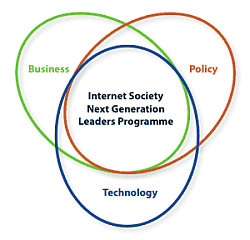
The 2015 Internet Governance Forum (IGF) will take place on 10-13 November 2015 in João Pessoa, Paraíba, Brazil and in a series of remote hubs located around the world.
Quick Links
- Schedule of sessions involving Internet Society participants
- Remote participation information
- Resources and documents for IGF 2015 participants
- Internet Society Policy Briefs covering many of the IGF 2015 themes
- Biographies of Internet Society IGF 2015 Ambassadors
- Internet Society blog posts related to IGF 2015
Featured Blog Posts
- On My Way To IGF 2015, by Internet Society President & CEO Kathy Brown
- IGF 2015: Tackling key challenges with everyone at the table, by Constance Bommelaer
Overview
Focused on the theme of “Evolution of Internet Governance: Empowering Sustainable Development“, the 2015 IGF focuses on eight primary themes:
- Cybersecurity and trust
- The Internet economy
- Inclusiveness and diversity
- Openness
- Enhancing multistakeholder cooperation
- The Internet and human rights
- Critical Internet resources
- Emerging issues
The Internet Society has strongly supported the IGF from its launch after the original World Summit on the Information Society (WSIS).
In 2015 Internet Society staff and chapter leaders will be active in João Pessoa – ISOC chapters are also providing some of the remote hubs.
2015 IGF Ambassadors
The Internet Society will once again be sponsoring a set of “Ambassadors” to the IGF. Please read their biographies.
More Information
Please see these websites for more information about the IGF 2015:



 Invitation to Applicants: Internet Society Ambassadors to the Internet Governance Forum (IGF)
Invitation to Applicants: Internet Society Ambassadors to the Internet Governance Forum (IGF)

 The
The  Veni Markovski, chair of the
Veni Markovski, chair of the